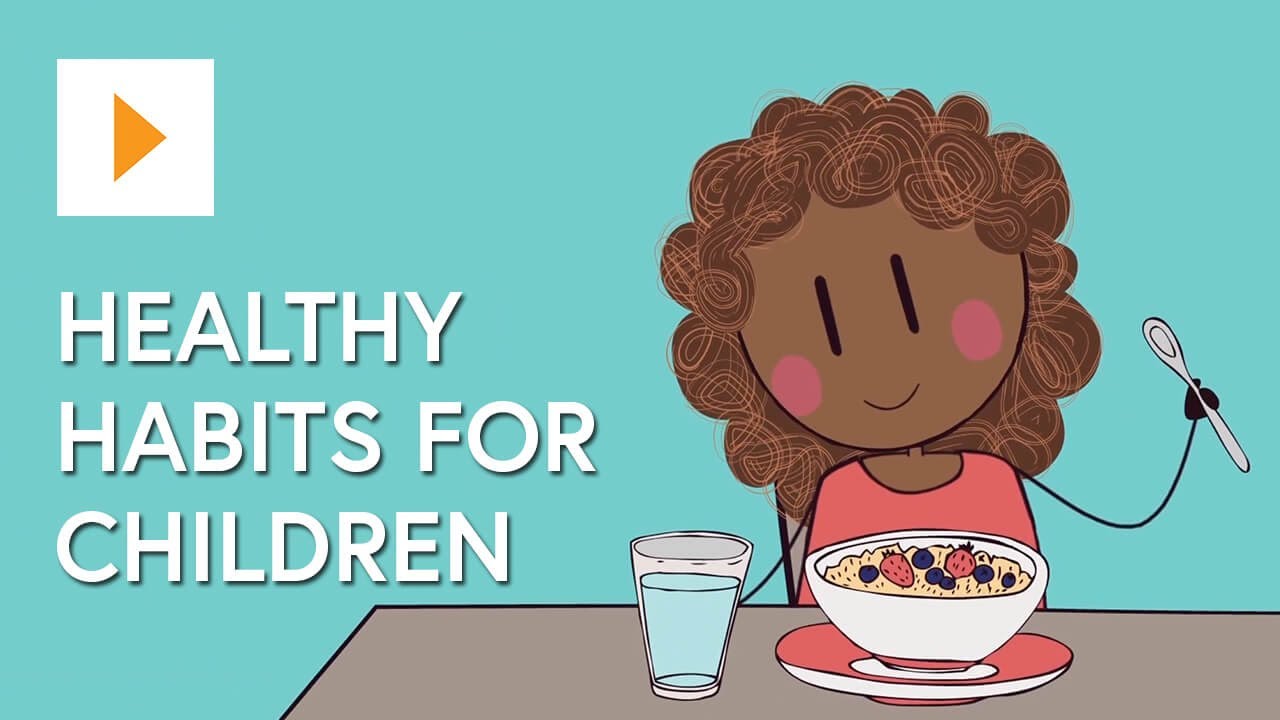In an era marked by sedentary lifestyles, unhealthy dietary choices, and increasing stress levels, the pursuit of a long, healthy, and fulfilling life has become more crucial than ever before. This comprehensive guide delves into the secrets of healthy living habits, providing practical tips and insights to empower individuals to make positive changes in their lives and achieve optimal well-being.
Understanding the Importance of Health

Health encompasses more than just the absence of disease; it is a comprehensive state of physical, mental, and social well-being. A healthy lifestyle not only reduces the risk of chronic diseases but also boosts energy levels, improves mood, and enhances overall quality of life. By incorporating healthy habits into our daily routines, we can reap numerous benefits that extend beyond physical health and profoundly impact our mental and emotional well-being.
Pillars of Healthy Living Habits
1. Nutrition
A balanced diet rich in fruits, vegetables, whole grains, and lean protein is essential for maintaining a healthy weight, providing essential nutrients, and supporting overall well-being. Reducing processed foods, sugary drinks, and unhealthy fats can significantly improve health outcomes.
Eating a Balanced Diet
- Focus on consuming a variety of whole, unprocessed foods.
- Include a wide range of fruits and vegetables in your daily meals.
- Choose whole grains, such as brown rice, quinoa, and whole-wheat bread, over refined grains.
- Incorporate lean proteins, such as chicken, fish, legumes, and tofu, into your diet.
- Limit your intake of added sugars, saturated fats, and sodium.
Staying Hydrated
- Drink plenty of water throughout the day to support bodily functions and maintain hydration.
- Limit your consumption of sugary beverages, such as soda and juices, as they can contribute to weight gain and other health issues.
- Consider incorporating herbal teas or infused water into your daily routine for added flavor and potential health benefits.
Mindful Eating
- Practice mindful eating by being present and attentive during meals, savoring each bite, and being aware of your body’s hunger and satiety cues.
- Avoid eating in front of screens or while multitasking, as these habits can lead to overeating and poor digestion.
- Cultivate a positive relationship with food by acknowledging the emotional and social aspects of eating, without using food as a coping mechanism.
2. Physical Activity
Regular physical exercise is crucial for strengthening the body, reducing the risk of chronic diseases, and improving overall fitness.
Incorporating Diverse Activities
- Engage in a variety of physical activities, such as aerobic exercise, strength training, and flexibility exercises, to target different aspects of fitness.
- Explore activities that you enjoy, whether it’s walking, cycling, swimming, or dancing, to increase the likelihood of sticking to a consistent routine.
- Consider incorporating high-intensity interval training (HIIT) into your workout regimen to optimize time and boost cardiovascular health.
Prioritizing Movement Throughout the Day
- Find opportunities to incorporate more movement into your daily life, such as taking the stairs instead of the elevator, going for a walk during your breaks, or doing simple stretches at your desk.
- Invest in a standing desk or take regular standing breaks to reduce the amount of time spent sitting.
- Engage in active leisure activities, such as gardening, hiking, or playing sports with friends and family.
Allowing for Adequate Rest and Recovery
- Ensure that you get enough quality sleep, as it is essential for physical and mental recovery, as well as overall health.
- Incorporate active rest days into your routine, where you engage in light physical activity or engage in restorative practices like yoga or meditation.
- Listen to your body and adjust your exercise regimen as needed to prevent burnout and injuries.
3. Stress Management
Chronic stress can have a significant impact on both physical and mental health, leading to a range of negative consequences. Effective stress management is crucial for maintaining overall well-being.
Practicing Relaxation Techniques
- Explore various relaxation techniques, such as deep breathing, meditation, or progressive muscle relaxation, to help calm the mind and reduce stress levels.
- Engage in activities that promote mindfulness, such as yoga or tai chi, which combine physical movement with conscious awareness.
- Set aside dedicated time for leisure and enjoyment, whether it’s reading, listening to music, or engaging in a hobby you love.
Maintaining Work-Life Balance
- Prioritize work-life balance by setting boundaries and managing your time effectively.
- Delegate tasks or say no to non-essential commitments to prevent overcommitment and burnout.
- Engage in regular self-care practices, such as taking breaks, engaging in hobbies, or spending time with loved ones, to recharge and rejuvenate.
Seeking Social Support
- Cultivate a strong social support system by connecting with family, friends, or community groups.
- Engage in activities that foster a sense of belonging and social connection, such as volunteering or joining a club or organization.
- Consider seeking professional help, such as counseling or therapy, if you are struggling with persistent stress or mental health concerns.
4. Sleep and Rest
Adequate sleep and rest are crucial for physical and cognitive function, immune system health, and overall well-being.
Establishing a Consistent Sleep Routine
- Aim for 7-9 hours of sleep each night to allow your body to fully rest and recharge.
- Maintain a consistent sleep schedule, even on weekends, to regulate your body’s internal clock.
- Create a sleep-conducive environment by keeping the room cool, dark, and quiet, and avoiding the use of electronic devices before bed.
Optimizing Sleep Quality
- Engage in relaxing activities before bedtime, such as reading, gentle stretching, or practicing deep breathing exercises.
- Limit the consumption of stimulants, such as caffeine and alcohol, close to bedtime, as they can disrupt sleep quality.
- Address any underlying sleep disorders or sleep-related issues by consulting with a healthcare professional.
Incorporating Rest and Recovery
- Take regular breaks throughout the day to allow your body and mind to recharge.
- Engage in passive activities, such as meditation or light stretching, to promote relaxation and rejuvenation.
- Consider incorporating power naps or short periods of rest into your daily routine to boost energy and cognitive function.
5. Mindfulness and Mental Well-being
Cultivating mindfulness and addressing mental health are integral components of a holistic approach to healthy living.
Developing Mindfulness Practices
- Engage in mindfulness exercises, such as meditation or breathwork, to improve focus, reduce stress, and enhance emotional regulation.
- Practice gratitude and positive self-talk to foster a growth mindset and promote overall well-being.
- Embrace the present moment by engaging in activities that bring you joy and a sense of purpose.
Prioritizing Mental Health
- Regularly check in with your mental and emotional state, and seek professional support if you are experiencing persistent difficulties.
- Engage in activities that promote mental well-being, such as journaling, creative expression, or engaging in hobbies.
- Cultivate healthy coping mechanisms to manage stress, anxiety, and other mental health challenges.
Fostering Social Connections
- Maintain strong social relationships and engage in activities that foster a sense of community and belonging.
- Seek out opportunities to volunteer or contribute to causes that align with your values, as this can enhance feelings of purpose and fulfillment.
- Prioritize self-care and set boundaries to ensure that your mental and emotional needs are being met.
6. Sustainable Lifestyle Changes
Achieving long-term health and well-being requires a commitment to sustainable lifestyle changes, rather than short-term fixes or fads.
Adopting a Holistic Approach
- Recognize that healthy living is not a one-size-fits-all solution, and tailor your approach to your unique needs and circumstances.
- Integrate various aspects of healthy living, such as nutrition, physical activity, and stress management, to create a well-rounded and sustainable lifestyle.
- Embrace a growth mindset, where you are open to learning, experimenting, and making adjustments as needed.
Fostering Accountability and Support
- Enlist the support of friends, family, or a health coach to help you stay motivated and accountable on your journey.
- Celebrate small wins and be patient with yourself as you navigate the ups and downs of lifestyle changes.
- Seek out resources, such as educational materials, online communities, or local support groups, to further strengthen your commitment to healthy living.
Embracing Flexibility and Adaptability
- Recognize that life is dynamic, and be willing to adjust your approach as your needs or circumstances change.
- Incorporate flexibility into your routine, allowing for occasional indulgences or deviations, without compromising your overall commitment to healthy living.
- Continuously evaluate and refine your healthy living habits to ensure they remain sustainable and align with your evolving goals and preferences.
Conclusion
Unlocking the secrets of healthy living habits requires a comprehensive and holistic approach that addresses various aspects of well-being, including nutrition, physical activity, stress management, sleep, mental health, and sustainable lifestyle changes. By embracing these principles and tailoring them to your unique needs, you can embark on a transformative journey towards optimal health and a fulfilling life. Remember, the path to lasting well-being is not a linear one, but rather a continuous process of self-discovery, adaptation, and commitment to your overall well-being.
wfriv.xyz